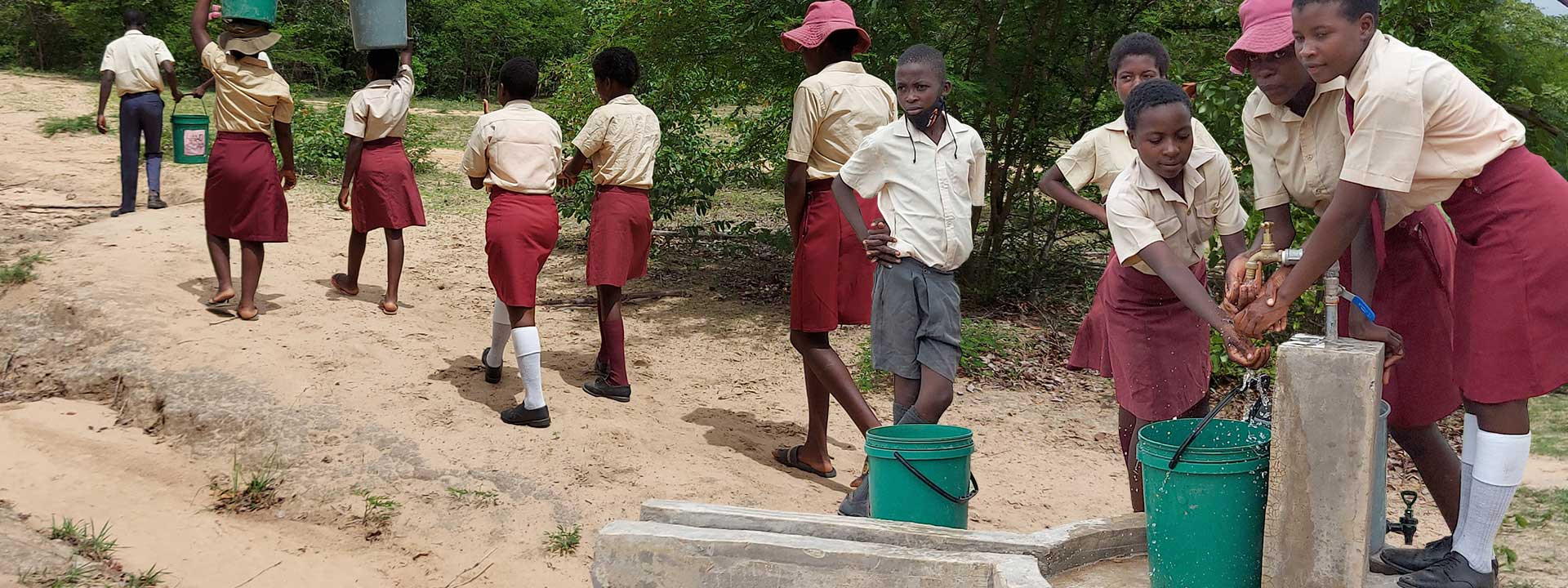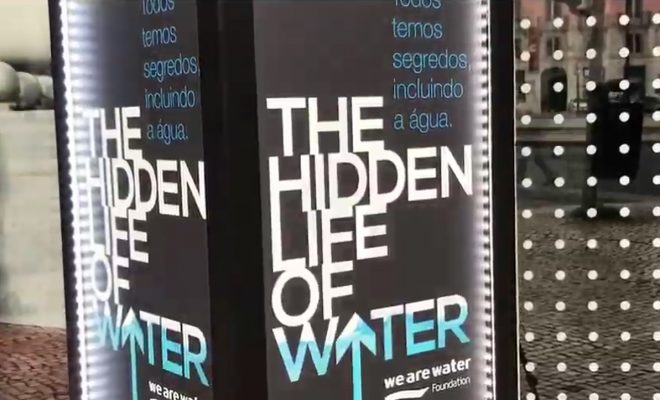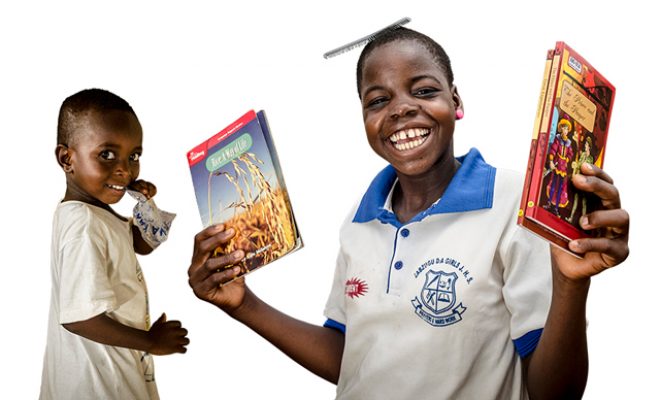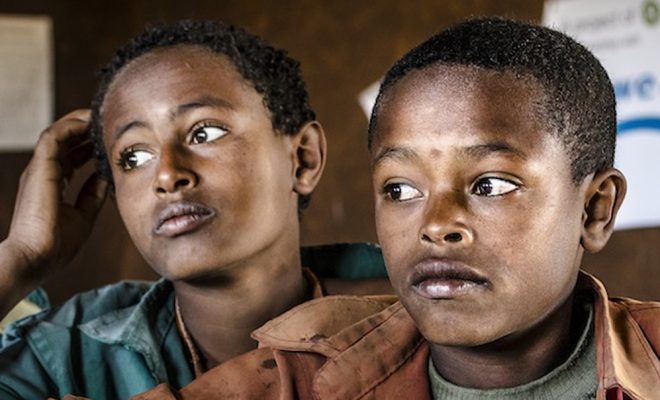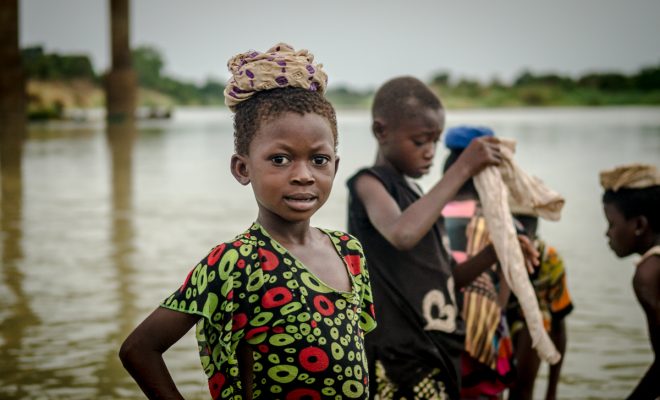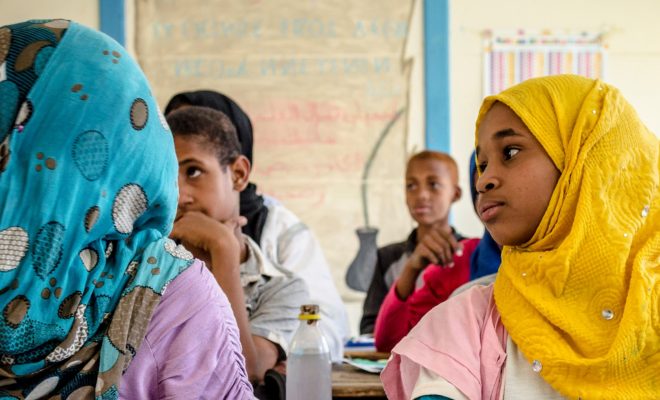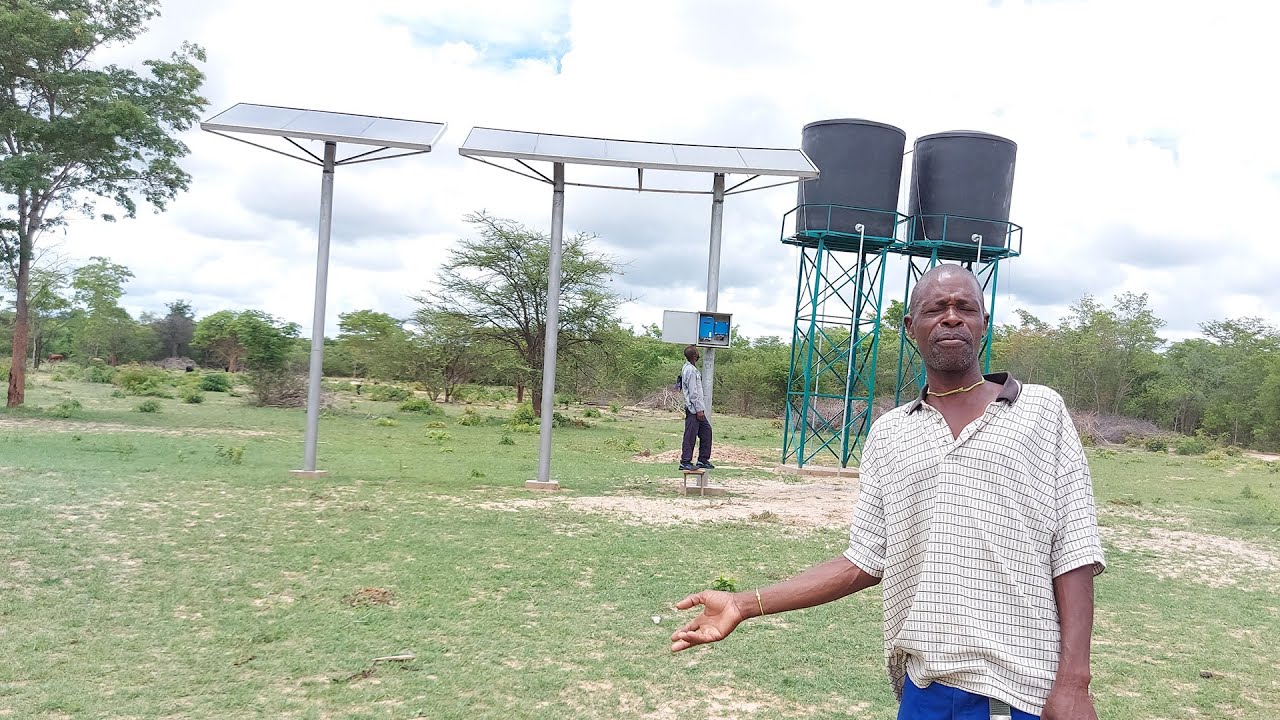
“Since we have water, life is easier for us. We can wash our hands after going to the toilet, I have water for my menstrual hygiene, and we have a garden where we grow vegetables and learn agriculture.” This is what Sandra, a student at Ngubo School in the Malunku community, one of 29 secondary schools in Lupane, Zimbabwe’s poorest district, tells us. The 325 students and their families have experienced a significant change in their lives since the Foundation, in collaboration with World Vision, built a solar well in the school compound.
When the school was built in 2018, it had no access to clean water. The nearest source was one kilometer away. It was a communal facility with a hand pump, and the students had to help each other to operate it. One of the daily school activities was fetching water with heavy jerry cans. With this water, they drank, washed, and flushed the latrines. In Zimbabwe, this is the norm for the nearly 1.6 million pupils who, according to the JMP, have limited water access, meaning they spend more than 30 minutes traveling to the nearest source.
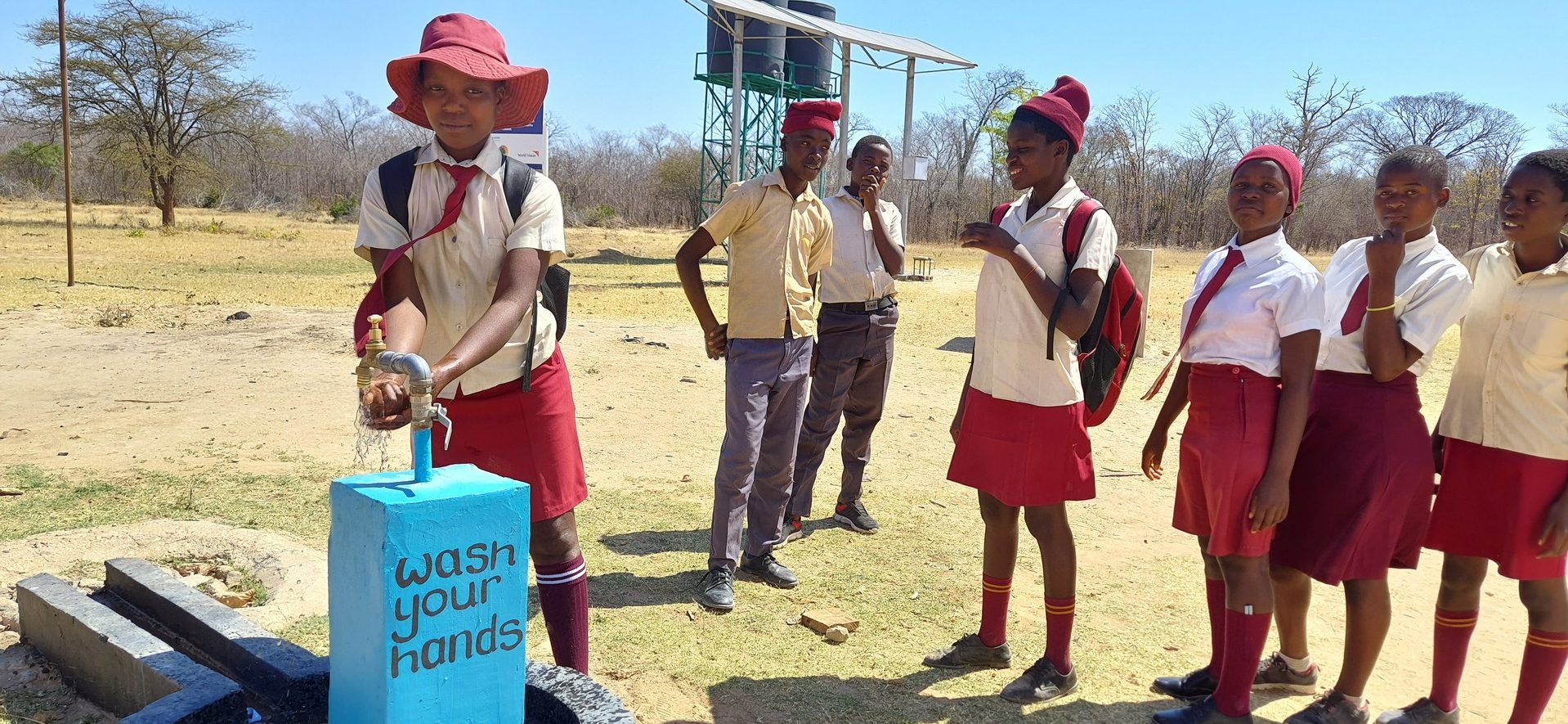
The benefits for students and their families show how improved access to water changes lives.
Hygiene, agriculture, progress
Ngubo’s schoolchildren now have water, and the 325 community members benefit from having a water point within 500 meters of their homes, the minimum recommended by the WHO. The new water point has meant a noticeable improvement in hygiene for pupils and teachers, as they can now wash their hands at critical times, for example, after using the toilets and before and after handling food, practices that were previously very difficult. Girls can clean themselves if they are menstruating while at school, unlike before when they had to return home and be absent until the end of their cycle. The cleanliness of the latrines has also increased with the possibility of flushing them, which has been a notable improvement in healthiness.
In the case of Ngubo, the benefits of having water go even further. The school has been able to start farming a half-hectare vegetable garden, from which the students obtain a nutritional supplement that significantly improves their diet (the malnutrition rate in the Lupane district is very high) and makes it possible to incorporate agricultural practices into the school curriculum in a stable and efficient manner.
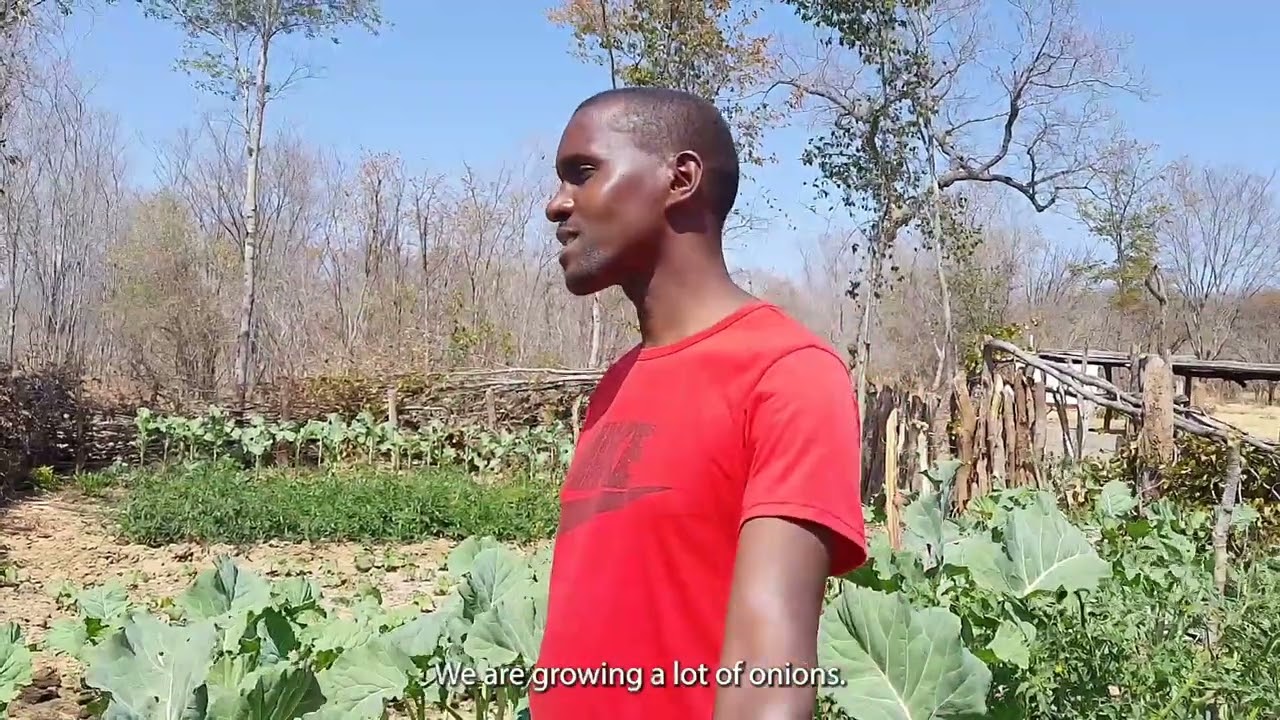
The head teacher of the Ngubo school shows the half-hectare garden and its benefits.
Agricultural learning, which used to be theoretical, now has a practical side. This is of utmost importance for the progress of the community, which lives in an area of high climatic vulnerability with low-yield non-irrigated crops: the soils are sandy, with nutrient deficits and little capacity to retain water. In addition, climate change is seriously affecting the area, whose average annual rainfall of 550 mm is very erratic. In recent years, periods of drought have increased, worsening poverty and malnutrition. The consequences of the Covid-19 pandemic, and increased food prices in recent months due to the war in Ukraine, have worsened the situation.
Agricultural education enables students to pass on knowledge of botany and geology to the community to increase the yield of family crops. Proper water management also has an impact on safeguarding the aquifers, which is the basis of their livelihoods.
The garden now enables the school to earn income from the sale of surpluses and has become a small economic development hub. Entrepreneurs in the district have committed to developing a pig and poultry farming project at the school. This completes the cycle of agricultural knowledge and opens up economic opportunities for the school to have funds to improve its facilities and acquire modern teaching materials.
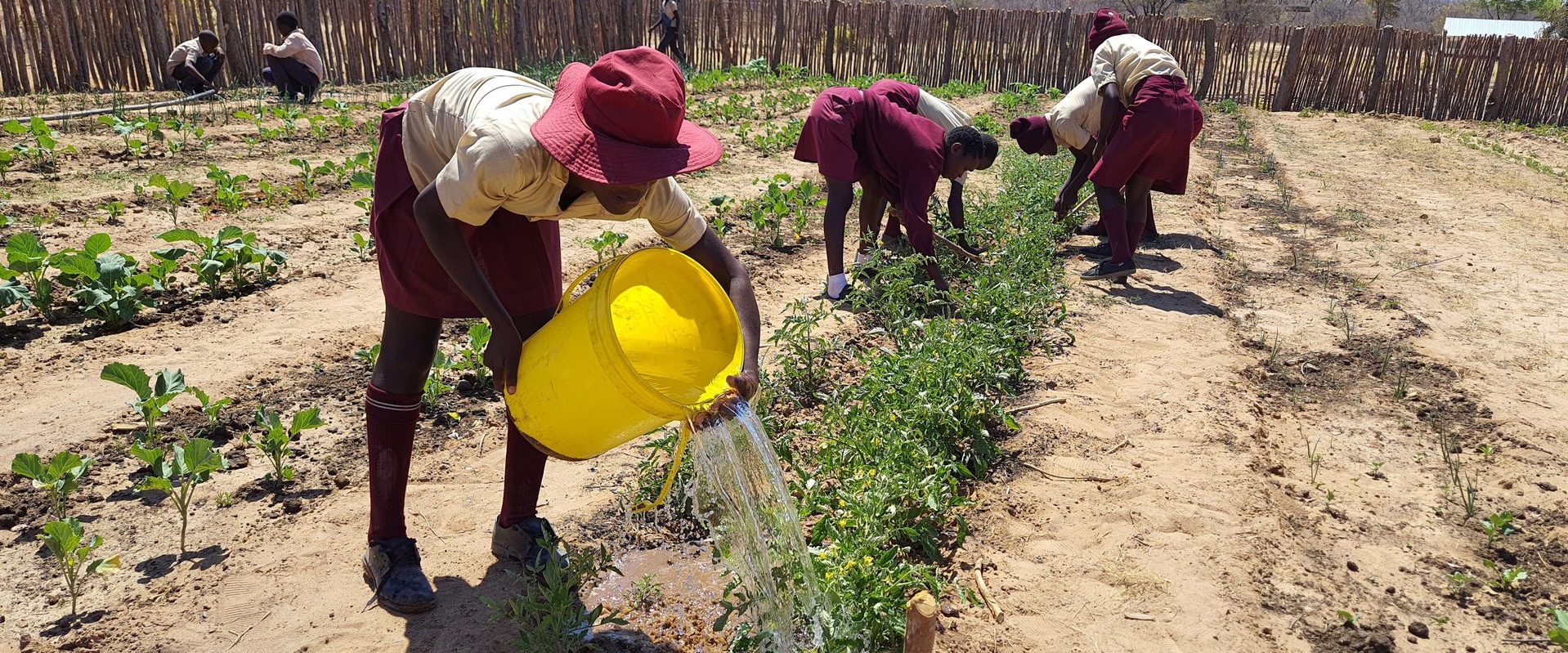
Agricultural education enables students to pass on knowledge of botany and geology to the community to increase the yield of family crops.
Participation is sustainability and resilience
The construction of the well has also allowed the community to become structured and cohesive through participation from the start of the project. This has created a sense of ownership that is the basis for the sustainability of the results. Joint participation has developed trust in collaboration as an instrument for overcoming difficulties and the conviction that one’s resources, however humble they may be, can provide a future with proper knowledge.
A simple well has thus made it possible to promote the educational process, which is the most effective protective environment for the people. Water has made it possible for young people to become agents of change, enabling adaptation and resilience in the face of the ravages of the climate crisis and the ups and downs of the economy. It is the basis for eradicating poverty and bringing us closer to the goals of a fair world. It is the hidden life of water.


